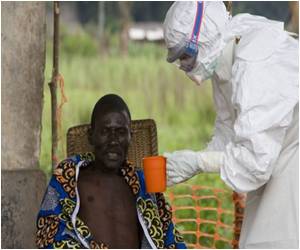
Writebol "is expected to return to the US for further treatment on Tuesday," said SIM USA. Her time of arrival was not announced.
"Her husband, David, told me Sunday her appetite has improved and she requested one of her favorite dishes ?- Liberian potato soup -? and coffee," said a statement by Bruce Johnson, president of SIM USA.
Writebol will travel on the same medical evacuation plane that carried Kent Brantly, a US doctor who was also stricken with Ebola and who arrived in the United States on Saturday.
Writebol will also be treated at Emory University Hospital in Atlanta, Georgia, where Brantly is being cared for in a specially equipped isolation facility.
Brantly was seen walking into the facility over the weekend, signaling that he may be getting better.
Advertisement
"There are people who have recovered. There are people with terrible outcomes," he said on NBC's "Today Show".
Advertisement
West Africa is facing the largest outbreak of the deadly hemorrhagic fever in history, with more than 800 dead since March.
The virus -- which causes fever, diarrhea, vomiting and hemorrhaging -- has spread to Sierra Leone, Liberia, Guinea and Nigeria.
Health experts say it does not transmit through the air, but rather through direct contact with the bodily fluids of an infected person.
This particular outbreak has been fatal in about 60 percent of cases, though past outbreaks have killed up to nine out of 10 people affected.
Source-AFP














